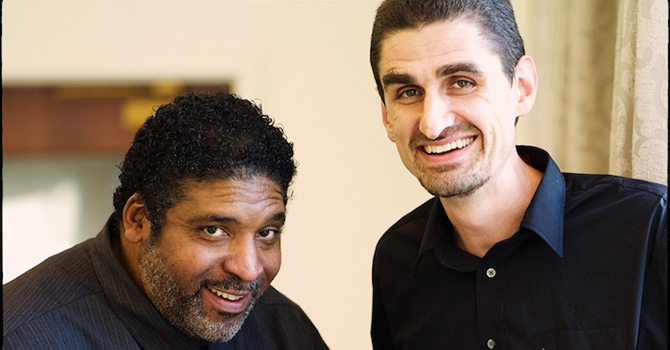On a cold night in the 1960s, a reporter found nonviolent activist A.J. Muste standing alone outside the White House, holding a candle in solitary vigil.
“Do you really think you are going to change the policies of this country by standing out here alone?” the reporter asked.
“Oh, I don’t do this to change the country,” Muste, who was nearing the end of his life, replied. “I do this so the country won’t change me.”
In a political moment that is every bit as fractious as the 1960s, the 2020 primaries have finally begun. Already, many Americans are haunted by the cynical realism of the reporter’s question.
Can my vote really make a difference? What good is a single campaign contribution when hundreds of millions of dollars have already been spent in the most expensive primary race in U.S. history? Even if my candidate wins, is the system so broken that it will force that person to either sell out or drop out?
Christians who ponder these questions must also face another reality of American politics: that Christians have an impact on American politics, for good or ill. For 40 years, the religious right has invested in a distorted moral narrative that pits “religious values” against progressive policies. This distortion has persuaded many white Christians to support political leaders and policies that demonize black and brown Christians and portray them as a threat to the nation.
Given this moral crisis, many Democrats have decided to make a direct appeal to voters of conscience or faith. In a December 2019 commentary for Religion News Service, Joe Biden wrote openly about his own Catholic faith. Pete Buttigieg has directly challenged the hypocrisy of Christians who excuse the personal immorality of President Trump. Elizabeth Warren and Bernie Sanders have said it is immoral to watch people die from lack of access to health care or to refuse to address the climate crisis while corporations rake in record profits for their elite shareholders.
Without doubt, socially engaged Christianity has had an impact on every social movement in U.S. history that has pushed us toward a more perfect union -- from abolition to women’s suffrage to labor rights, civil rights and human rights. While these movements have always faced well-funded opposition that has tried to claim the moral high ground, they have built a broad consensus for their demands by appealing to people of faith and rooting the justice they seek in the faith traditions that give many Americans their most basic sense of right and wrong.
These movements teach us that we cannot love our neighbor as ourselves within a democratic system of government without getting involved in politics, especially on behalf of the most vulnerable. Even if we don’t think it will make a big difference for our own lives, this tradition insists that we vote -- for the sake of the immigrant family separated by extreme ICE enforcement, for the poor family whose SNAP benefits have been cut, for the disabled neighbor whose Social Security benefits are under threat.
All of this is true. Yet I think A.J. Muste was on to something more. If faith is to sustain us in the struggle for public justice, we must each do the inner work to realize that our engagement is fundamentally a struggle for our own souls.
“Love your neighbor as you love yourself,” Jesus taught. Our political engagement as Christians is not just altruism. It is also a means of bearing witness to who we want to be. This is a decision we must make every day, no matter the odds. Even in races we can’t “win,” faith compels us to show up and bear witness that another way is possible.
This faith, I have learned, is the only thing that sustains struggles for truth and justice in this world.
When Pharaoh had the power and the army, Moses and God’s people had faith that the Lord could make a way out of no way. When the slaveholders had Congress and the Dred Scott decision backing them, the abolitionists had the conviction to say that every attempt to beat back their struggle only served to further embolden them. When the segregationists of Selma, Alabama, had the governor and the law on their side, the unarmed marchers on the Edmund Pettus Bridge knew they had the truth.
The question for them was never whether truth was going to win. It was always whether they would stand true to what was right while the forces of segregation clung to power.
As the 2020 campaign feels to many like it’s already drug on forever, even as it is just beginning in earnest, people of faith would do well to remember Muste’s wisdom.
Yes, we have a moral obligation to change a system that is crushing people. But the faith that sustains that struggle is rooted in a refusal to be conformed to a world that says the suffering of so many is just the way things have to be.















